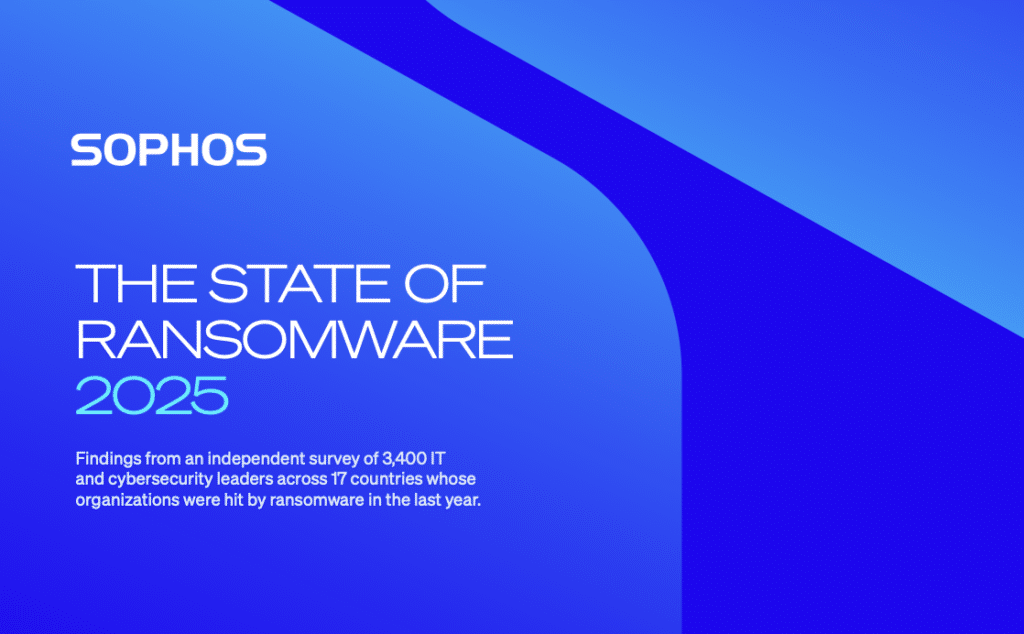Don’t let your company down! C-Suite executives cannot afford to be the weakest security link, say Espria

In 2023, we saw significant advancements in cybersecurity. Whilst the impact of the Russia-Ukraine conflict opened the doors to cyber-attacks across many industries, it also revealed more about cybercriminals, and in particular, their organisational structures. However, the security landscape has shifted towards adopting zero-trust practices and cloud infrastructure, with operational teams now expected to understand and uphold ransomware protection practices.
Yet this basic level of security compliance is hardly a reason to celebrate, as cyber actors are unlikely to leave businesses alone when the promise of a cash pay-out remains. Cyber-attacks are becoming more sophisticated, almost surgical in their methods of exploiting weaknesses. To maximise profit and minimise the time spent per attack, threat actors are choosing to focus on targets with the highest value – i.e. where they can gain the biggest bang for their buck.
Dave Adamson, CTO at Espria believes that SMBs should not get complacent with security, as they are appealing targets for ransomware attacks. “Ransomware attackers are doing their homework, learning and understanding the value of specific, often smaller organisations, and tailoring their attacks to take advantage of available revenues. Simply asking for turnovers per day, with the threat that operations could be locked down for the equivalent of a week’s worth of revenue, is enough to get SMBs to pay up in the hope their attackers will move on.
“It is important to emphasise that the vast majority of attacks we observe are purely financially motivated. Where small business owners assume the value is in larger organisations, cyber attackers are more interested in a reliable pay-out, which is easier to achieve from weaker targets. By exploiting potential misconfigurations in cloud services or platforms, cyber actors expose sensitive data, compromise applications and disrupt operations.
“Whilst we live in a world with increasing automation, cybercriminals are going the opposite way. Often now it’s a human operative on the other end that’s attacking, rather than automated. This presents a bigger problem for security, as humans are blessed with the ability to adapt and problem-solve more effectively. But let’s not forget, they have the same access to AI tools that we do.
Adamson adds further that it’s not just ensuring operational teams are secure, as often overlooked vulnerabilities with C-suite operatives can lead to even greater catastrophe. “Last year, we saw an increase in executive impersonations, with a nearly 30% spike in fraud and piracy specifically targeting executives. C-level executives are often an organisation’s weakest security link; by having the greatest level of access within the company, they automatically become the most ideal target for attack, but when it comes to security practices they often go overlooked compared to the training of their teams.
Additionally, in increasing their online presence – whether it be for brand awareness, building reputation and credibility, or improving business outcomes – they increase their points of access tenfold, leaving more doors open for hackers to walk through. If their digital identity isn’t properly protected, this can be a massive liability for their wider organisation.”
Adamson believes shoring up C-suite vulnerabilities is a necessity for 2024 standard security procedures. “With emerging AI technology only boosting phishing and ransomware attempts, C-suite executives need to be more aware than ever of the access they might be accidentally handing over for exploitation. Even with the best safeguards in place, cybercriminals are now sophisticated enough to circumvent it; technology on its own isn’t enough to keep on top of these challenges.
By ensuring that organisational zero-trust practices and other standard security methods and training extend to top executives, SMBs can shore up their biggest security weakness and prevent total operational disruption.”
To read more about our Cyber Security Services, please click here.
You may be interested in
Is Your MSP Really Helping You Grow — Or Just Keeping the Lights On?
There’s a moment in every business where the question quietly surfaces: “Are we getting what we really need from our IT provider?” It’s not always easy to answer. On the surface, things seem fine. Tickets are resolved. Reports arrive. There’s someone to call when things go wrong. It’s familiar. It’s comfortable. And that comfort can be deceiving. Because beneath the surface, many organisations are stuck in a service relationship that feels safe — but is actually stagnant. And here’s the truth: comfort isn’t the same as progress. For many, the idea of changing MSPs or challenging the…
The 2025 State of Ransomware: Key Insights on Attacks, Costs, and Recovery
Ransomware continues to evolve — and so must our defenses. The State of Ransomware 2025 report from Sophos presents one of the most comprehensive views yet into how organisations around the world are being impacted by ransomware attacks. Based on an independent survey of 3,400 IT and cybersecurity leaders across 17 countries, the report explores how attacks are evolving, the operational weaknesses adversaries exploit, and the human and financial tolls that follow. Whether you’re building a cybersecurity strategy or assessing risk, this year’s findings offer crucial, real-world insights to guide your response. Key Findings from…
Outgrowing your MSP; businesses need a provider that scales with their growth
To stay competitive, business leaders must align with MSPs that deliver strategic value, drive innovation, and support to scale. Now firmly into 2025, it’s becoming clear what the year has in store for the IT landscape. For SMBs, the message is clear: business growth must be matched with smarter, more scalable managed services. The demand for cyber-resilient, cloud-first and AI-integrated solutions is no longer a forecast – it’s a reality already shaping business priorities. According to leading global technology market analyst firm Canalys’ MSP Trends 2025 report, the MSP model is transforming under growing pressure…
End of windows 10 support signal urgent action needed from UK organisations as cyberattacks continue to rise
Recent breaches at major UK retailers, combined with the approaching end of life of Windows 10, highlights a critical moment for IT resilience planning The recent wave of cyberattacks targeting major UK retailers has highlighted the growing security risks associated with organisations running outdated systems and applications and maintaining weak identity verification protocols. These incidents—particularly those involving Marks & Spencer and the Co-Op—have starkly exposed how vulnerable legacy infrastructure and insufficient access controls can be. In both cases, attackers successfully posed as legitimate employees and manipulated IT help desks into resetting internal passwords, ultimately gaining…
UK SMEs must fortify their cybersecurity against geopolitical risks, says Espria
A recent Sky News investigation highlighted an uptick in cyberattacks tied to the Iran conflict that are targeting businesses across multiple sectors. Speaking at the NATO Summit, Prime Minister Sir Keir Starmer urged UK businesses, regardless of size or sector, to prioritise cybersecurity and ‘take immediate steps to review and strengthen their defences.’ While the warning is timely in tone, businesses are already becoming targets of politically motivated cyberattacks, emphasising the need for heightened vigilance. “As tensions spread globally, threat actors will continue to exploit digital vulnerabilities, and neutral businesses may be caught in the…
Why Businesses Should Invest in ESG: Lessons learned by Espria
In today’s competitive landscape, Environmental, Social and Governance (ESG) performance is no longer just a “nice to have”—it is a critical business imperative. Companies that prioritise ESG are better positioned for long-term success, risk mitigation, and reputation enhancement. Today’s world demands more from companies than just financial performance. Customers want transparency. Employees want purpose. Investors want resilience. ESG helps businesses manage risk, seize new opportunities and build trust with the people who matter most. It is how you can stay competitive, stay responsible and stay relevant in a fast-changing world. A powerful case study of…





